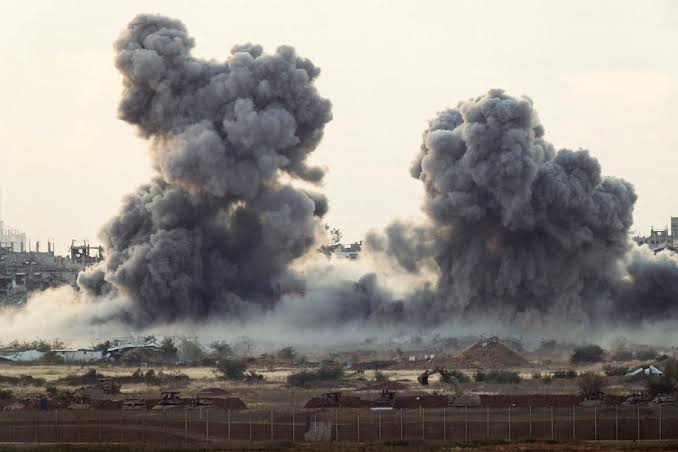Israel’s defence minister has announced that its military will remain stationed in specific “security zones” within Gaza even after the war ends. These zones, established through the ongoing military operation, are intended to act as a buffer to protect Israeli communities.
According to the minister, large portions of Gaza—estimated at “tens of per cent”—have been seized since the Israeli offensive resumed three weeks ago. Israel also intends to maintain its current blockade on humanitarian aid as a means of pressuring Hamas to release remaining hostages, despite growing international concern over the humanitarian toll.
Read more
Solar system registration barriers in South Africa
Kidnapped American Pastor Rescued After Five Days in Captivity
Tragedy at WSU: Slain Protester Confirmed as Enrolled NSFAS-Funded Student
A medical charity described Gaza as having become a “mass grave” and warned that the population is undergoing mass displacement and suffering due to critical shortages. Health authorities in Gaza reported more than 1,650 deaths since the conflict resumed in March, with dozens killed in strikes on Wednesday alone—many in Gaza City, including members of the Hassouna family.
Military operations have expanded across the territory. Israeli forces have created a corridor isolating the city of Rafah and declared around 30% of Gaza a permanent operational zone. Officials stated they have killed hundreds of militants and will not withdraw from cleared areas, aiming to keep troops stationed as a permanent security measure—similar to policies along Israel’s borders with Lebanon and Syria.
Meanwhile, humanitarian conditions have worsened significantly. Aid organisations report a critical lack of tents, food, medicine, and access to care. Malnutrition is rising sharply, especially among children, and emergency medical workers continue to face fatal risks.
The Israeli military campaign began in response to an unprecedented cross-border attack in October 2023 that resulted in the deaths of approximately 1,200 people and the capture of 251 hostages. Since then, over 51,000 people have reportedly been killed in Gaza, and 1.9 million displaced.
A brief ceasefire earlier in the year allowed for a limited exchange of hostages and prisoners, but talks for an extended truce have since broken down. A new ceasefire proposal from Israel was reportedly rejected by Hamas, which demands a full withdrawal of Israeli forces, the lifting of the blockade, and a comprehensive plan for reconstruction.
In a recent development, a video was released showing an Israeli-German hostage appealing for his release. Calls have intensified from families and military veterans urging the government to prioritize the safe return of all hostages above continued military operations.

